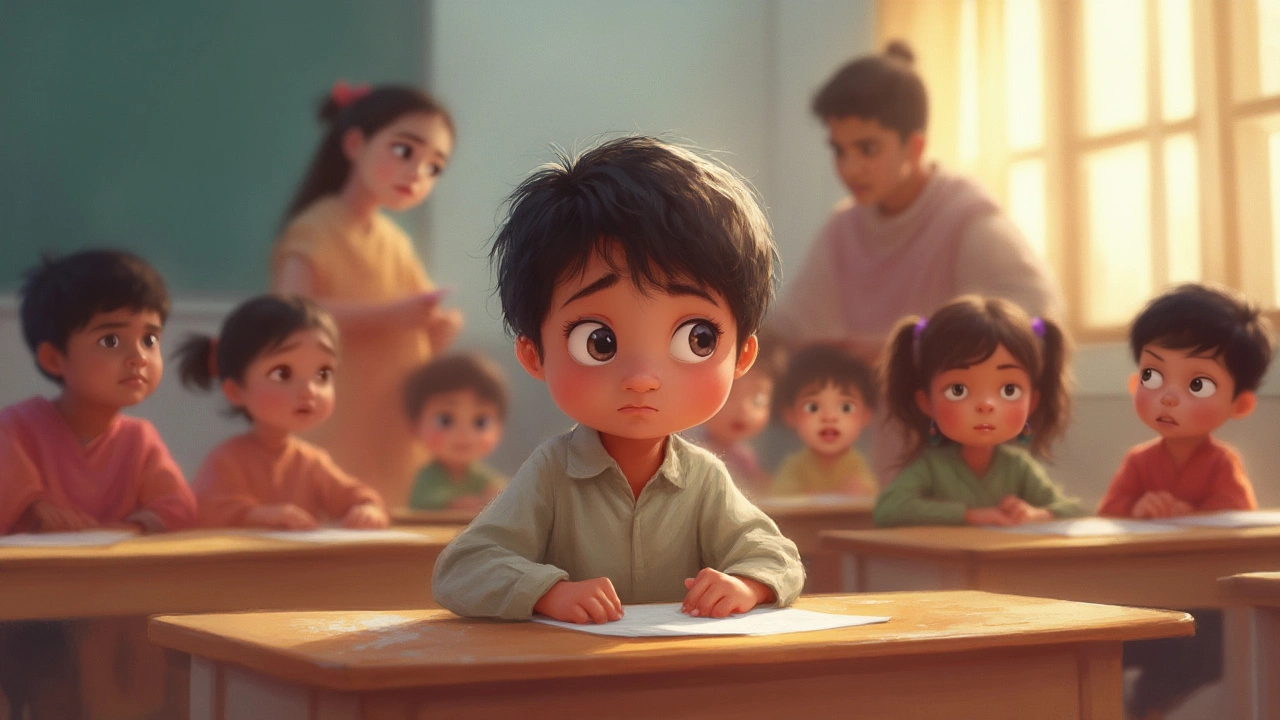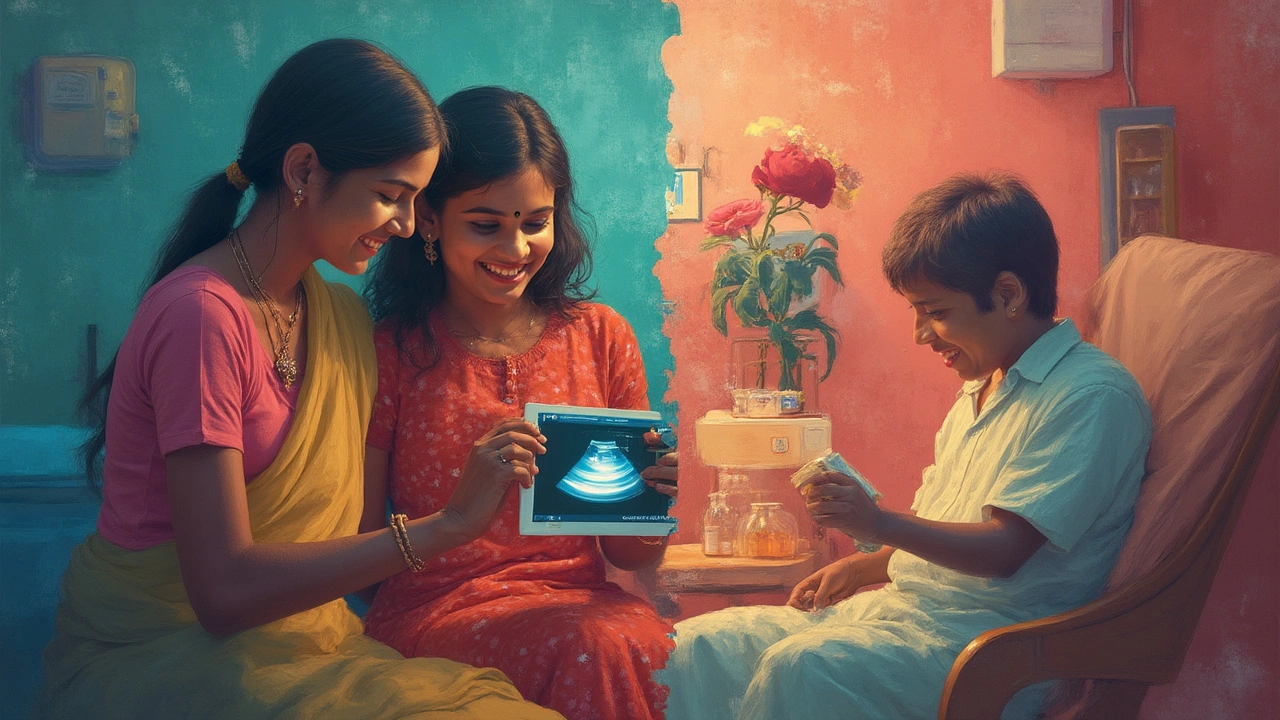
- Jul, 15 2025
- 0
It feels like every week, someone famous announces a pregnancy that happened thanks to IVF. There’s no question—it’s given millions the chance to have kids when nothing else worked. But when you open up the conversation about what happens after the baby arrives, things get a bit quiet. Sure, the success stories make headlines. But what about the flip side? What are the actual risks and challenges children born via IVF might face? Let's pick apart the science, the real-life issues, and the misunderstandings swirling around this topic.
Medical and Physical Health Risks in IVF Children
There’s a ton of emotion built into the IVF journey. After years of heartbreak, getting pregnant is cause for celebration. What rarely comes up, though, are the studies suggesting IVF children—compared to those conceived the usual way—might face a higher risk of certain health problems. Now, don’t get me wrong. Most IVF babies are completely healthy. But, we can’t ignore that bigger pool of research popping up, especially over the last ten years, that points toward subtle differences.
What kinds of health risks are we talking about? Preterm birth is one biggie; official Australian government stats put the rate of preterm birth higher in singletons born after IVF versus natural conception. This isn’t about twins, where preterm birth is unsurprisingly common; even single babies birthed via IVF are at greater risk. Then there’s low birth weight. You find a similar pattern: singletons born after IVF are more likely to weigh less at birth. Both preterm delivery and low birth weight can set a child up for health issues down the line—think asthma, type 2 diabetes, or even heart trouble.
That’s not all science is flagging. Some studies draw a link between IVF and higher chances of birth defects. For example, a review published in The New England Journal of Medicine tracked a slight uptick in the risk of congenital heart disease and rare genetic syndromes in IVF babies compared to those born the old-fashioned way. Still, before you panic, it’s worth remembering that the absolute risk is low. We’re talking about small increases—like from 3% to 4%, not some enormous jump.
IVF also seems to tweak how genes are expressed, a process called epigenetic change. It sounds over-the-top, but these are chemical tags that can turn genes “on” or “off.” Recent findings suggest some IVF kids might have differences in this area. Most of the time, these changes don’t cause any trouble. Rarely, though, they may bump up the risk of conditions like Beckwith-Wiedemann syndrome—a disorder where kids grow faster than usual and are more likely to develop certain tumors. The odds? Still very low, but researchers agree there’s something going on worth watching as more IVF kids reach adulthood.
Some people worry that pumping eggs full of medications or fertilizing them in a lab dish might have long-term effects on the immune system. There isn’t strong evidence for big differences, but some hints exist: for example, a few studies from Denmark and Australia have observed upticks in mild allergies or asthma in IVF kids. These findings aren’t slam-dunk proof, so no one’s sounding alarms. But most doctors keep an eye out, because sometimes little differences at birth can show up as bigger health stories years later.
What about the risk of cancer in IVF children? This topic made headlines in the past, with some reports suggesting higher rates of leukemia or other rare cancers among IVF-conceived kids. However, follow-up research, including a huge Australian cohort surveyed until their early twenties, found the risk of childhood cancers remains very low and only slightly higher than average. So while it’s on parents’ minds, current evidence isn’t pointing to a crisis.
Boys conceived by IVF might experience slightly lower sperm counts when they hit adulthood, according to a Dutch study published in the journal Human Reproduction in 2022. This is a very new area, and researchers are still figuring out if it’s a true consequence or just coincidence. For now, it’s something doctors mention, but not a major concern.
If you’re already worrying about these risks, here’s a tip: Regular check-ups and staying up to date with child development milestones can help catch problems early, whether your kid was conceived naturally or with help. And remember, no method of conception guarantees perfect health.

Emotional, Social, and Psychological Effects of IVF
The health side isn’t the only thing parents and would-be parents think about. There’s a quieter set of concerns: What’s it like for a child growing up knowing they were the product of IVF? Does the process mess with family relationships or create future identity issues?
Kids don’t always know they came from IVF. Whether parents tell them—and how they do it—matters. According to an Australian study by Professor Kate Bourne, children who grew up with honesty around their origins generally adjusted well. Actually, most IVF kids blend in with their friends, and don’t feel any stranger about how they arrived in the world. But problems can pop up if there’s secrecy or if older relatives make a big deal of “differences.”
Sometimes cultural beliefs can complicate things. In certain communities in Sydney, for example, myths about IVF children being “artificial” or “not real” linger. That’s tough, and can be hurtful for the child if they hear it. In a small number of cases, kids have reported feeling “different,” anxious, or even ashamed if they sense stigma—though this has more to do with social treatment than anything biological.
IVF also brings up practical issues for families. Sometimes, donor sperm or eggs are used. If the child finds out later—especially if it was kept a secret—it can kick up questions about identity and belonging. There’s growing evidence from the Donor Conception Support Group here in Australia that transparency from an early age saves heartbreak later on. Telling the story early and in a way that matches the child’s age helps them build a strong, secure sense of self.
Parents who go through IVF sometimes describe intense anxiety about their child’s health. Years of treatments, loss, and medical appointments can leave parents extra sensitive, making them more likely to hover, worry, or over-protect. While this comes from a place of love, some kids pick up on the stress or pressure, developing their own worries about health or needing to “live up” to years of parental hope. Family counseling or parenting support can help here—Sydney’s Fertility Society recommends group sessions for parents-to-be so they get support beyond just the medical side.
IVF is expensive. That means some families might carry heavy financial stress into the years after their child is born, which can trickle down emotionally. But this isn’t unique to IVF—it’s true of any pricey medical procedure.
Peer interactions are worth thinking about, too. As kids enter their teen years, questions about their origins might get more complex. With genetic testing and ancestry kits everywhere, it’s easier than ever for teens to discover family secrets. Experts suggest ongoing, age-appropriate conversations can ease the transition, rather than waiting for an awkward reveal in the teenage years.
Tips for parents: Try not to treat the fact that your child was conceived via IVF as something weird or embarrassing. Keep communication open, honest, and loving. Support networks like Fertility New South Wales or ReachOut Australia offer workshops and resources for both parents and kids as they grow up—never a bad idea to join if you’re feeling overwhelmed.

Long-Term Considerations and Myths Around IVF Children
You’ll hear a lot of stories about what IVF kids “turn into” when they reach adulthood. Some say they’re more likely to be sickly, awkward, or unable to have children of their own. These are mostly myths—but there’s still lots to learn, because IVF is only about 40 years old, and the oldest IVF kids are just now having their own babies.
It’s not just medicine that shapes how we look at these kids—myths and misinformation are everywhere. For instance, it’s often said that IVF children struggle to form close bonds, that they’ll face mental health problems, or that they’re unable to have natural pregnancies as adults. Careful tracking by Melbourne’s Murdoch Children’s Research Institute tells a different story: IVF kids grow up to be just as happy, healthy, and successful in relationships as anyone else. They graduate school, make friends, fall in love, and start families at similar rates to other Aussies.
Still, researchers are keeping tabs. The medical world is watching closely to spot rare but serious outcomes—like adult-onset heart and metabolic diseases, or fertility challenges that might go unnoticed until years down the road. The good news is, up to this point, nothing suggests major long-term differences for most kids. Fertility Australia’s tracking database from 1992 to 2022 shows that 97% of IVF-conceived kids enter adulthood with typical health and educational outcomes.
A big point of confusion is the difference between correlation and causation. Just because IVF kids have a higher rate of a challenge (like early birth) doesn’t mean IVF is always the reason. Many couples turning to IVF already have underlying medical issues—things like polycystic ovary syndrome, endometriosis, or advanced age. These factors by themselves can influence a child’s health, regardless of how they were conceived.
Technology is changing fast. Techniques such as ICSI (injecting a single sperm into an egg) or embryo freezing have only become common in the past two decades, so research is still catching up. We don’t know for sure if these advancements change the risk profile, but early data hints that success rates are going up and complications aren’t surging.
If you’re weighing your own options after years of trying, it’s smart to ask your doctor real questions about risks—not just the glossy brochure version. Ask about clinic success rates, the protocols they use, their handling of multiple embryos, and what long-term support is in place. High-quality clinics usually keep detailed records and will be upfront about what you can expect before, during, and after treatment.
Here’s a tip for would-be parents: Focus on your health before you start IVF. Eat well, get moving, and manage stress. The healthier the parents, the lower the risk for complications. Some clinics, especially in Sydney, now blend fertility care with nutrition support and psychological counseling, which helps smooth the road for everyone involved.
Be wary of quick fixes promoted online, from supplements that claim to “boost” embryo quality to miracle diets. Instead, look for clinics accredited by the Fertility Society of Australia, and steer clear of anyone unwilling to answer tough questions about risk.
Finally, if your family feels different because of IVF, know you’re not alone. Around the world, it’s estimated that more than 10 million babies have been born using this technology. The best way forward? Be honest, stay informed, and connect with other parents facing the same questions. With careful planning, transparent communication, and quality medical support, kids born via IVF can thrive—just like everyone else.
Nikhil Verma
I'm a dedicated physician with a passion for exploring the intricacies of medicine, focusing on the unique healthcare challenges in India. I spend much of my spare time writing articles aimed at improving public understanding of health issues. Balancing my clinical practice and writing allows me to reach a wider audience, sharing insights and fostering a deeper appreciation for medical advancements. I derive immense satisfaction from both treating patients and engaging with readers through my writing.